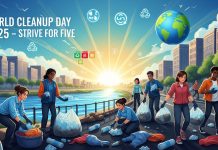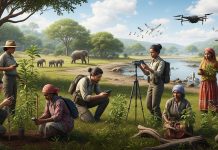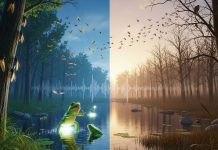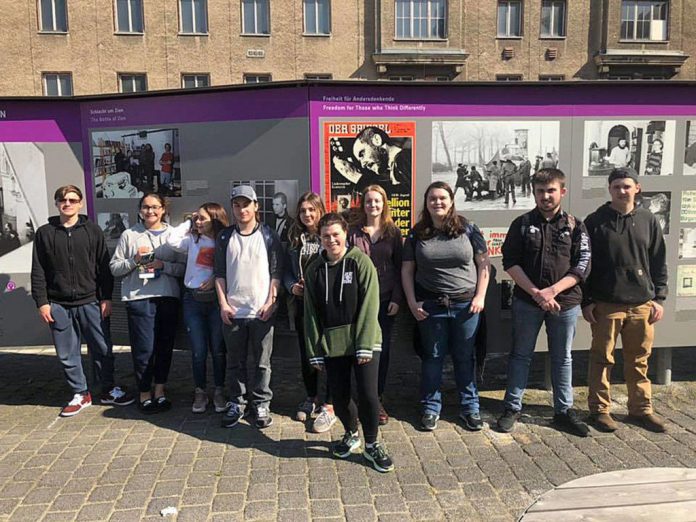Ten Decatur High School students experienced firsthand progressive sustainability and ecotourism practices on a recent field trip to Germany and Switzerland.
Jordan Lybeck, agricultural sciences teacher at Decatur, and several horticulture and animal science students embarked on a 10-day educational tour of sustainable living in Germany and Switzerland, organized through Education First.
In April, the group traveled to Berlin, Stuttgart, Freiburg and the Lucerne region, exploring historical museums, cultural monuments, and geographic wonders from cities to farmlands.
For many of these students, it was their first time out of the country or even on an airplane, Lybeck said.
“I think in total we traveled about a thousand miles in a couple of days just by train and bus,” Lybeck said.
The students learned about a biosphere reserve, Lybeck said, which is similar to the national parks in the U.S., but in Switzerland, they allow people to farm and live in the park.
“A lot of their ecosystems can’t go on without human intervention, so they allow their farmers to graze cattle up in the hills because they clear the area out, which allows the wildflowers and native plants to grow,” Lybeck said. “It preserves their culture but it also preserves nature and a way of life for people.”
In his classes, the focus is to teach kids how to live more sustainable lives, Lybeck said, so when he received a promotional email about the trip, it was a perfect fit.
One student said Europe shines a light on a reimagined metropolis area, typically thought of as a smog-filled city, instead showing it can be environmentally safe.
“Everyone has a garden. Every building has solar panels; they made each building so that the light would filter in though certain times of the year to warm up the house or cool it down during the summer,” said student Hallie C. “It was just amazing that in a place that you think would be overrunning with sewage and grossness was better than suburban areas.”
“I liked how they have reusable energy sources,” said student Kayden S., explaining the mass use of solar panels and the timber burning mechanisms used as central power sources for heating and electricity. “I think that’s something I could take and apply it to my own life at some point.”
The students also got to experience the Innovation Academy, also called the “Maker’s Space,” where they designed keychains via a computer software, and then saw a 3-D printer laser bring their design to life.
The students also got to work with animation graphics and virtual reality to create their own world, exploring their creation with virtual reality goggles.
They also toured the Holocaust memorial, which was fascinating, yet decripid, dark and creepy, the students agreed. They viewed the Berliner Fernsehturm, a satellite TV tower constructed between 1965 and 1969 by the government of the German Democratic Republic.
Some teaching moments were unplanned.
The group’s departing flight from the United States to Amsterdam landed late, causing them to be delayed for their following flight. Deboarding the plane on the tarmac, the 13-person group ended up getting split into three.
It was Kayden S. who sprinted through the airport, arriving at their second flight in just enough time to speak with the captain and hold the plane for the rest of the Decatur group.
“It’s a good learning experience because you learn how to problem solve and all sorts of logistical things,” Lybeck said of the airport stresses.
While the students may not always remember the random facts they learned from their knowledgeable tour guides, the life experiences of nearly missing a connecting flight, or hearing how wars they had read about in textbooks had firsthand impacted the lives of people they met in various countries — those memories are unforgettable, Lybeck said.
“Sustainability was the theme of the trip, but the life lessons I think are going to stick with them a lot longer,” Lybeck said. “I think sustainability was a big part of it because it relates to the course and what we do here, but I think the cultural differences and life lessons they learned were probably the most important.”

















